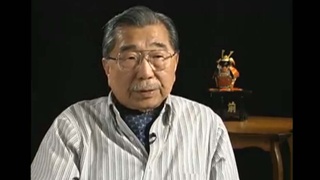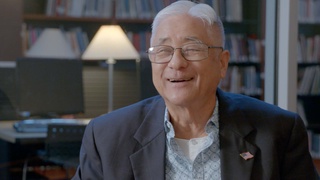Interviews
Japanese were not welcomed back to Salinas
Politically speaking, Salinas was also taken over by the people from Oklahoma, the Dustbowl people from Oklahoma who took over the farming and supervisory position in Salinas, and of course politically speaking they didn’t want the Japanese to come back because it was competition. And as a result, Salinas has been for a long time did not want the Japanese to return.
As a matter of fact, my father’s company wrote a letter to him telling him that we employees of the Salinas Valley Vegetable Exchange—that’s the name of the company my father owned—that he would not return to Salinas. And as a result we did not go back to Salinas. So that’s the reason why we relocated to Los Gatos.
Date: March 22, 2018
Location: California, US
Interviewer: John Esaki
Contributed by: Watase Media Arts Center, Japanese American National Museum
Explore More Videos

The political effects on Nikkei during the war (Spanish)
(b. 1950) Nisei Chilean, Businessman

Government sold Japanese Canadian properties for little money
(b. 1928) Doctor. Former Chair of the Japanese Canadian Redress Foundation.

Questioning Curfew
(1918-2012) Fought the constitutionality of Executive Order 9066.

Challenges of finding a summer job
Judge, only Japanese American to serve on CWRIC.



Traumatic experiences before camp
(1913-2013) Doctor specializing in obstetrics in Southern California

“Everybody went in like sheep”
(1913-2013) Doctor specializing in obstetrics in Southern California

Postwar school-life
(b. 1930) Half Japanese and grew up in both Japan and the United States.

Facing discrimination in America (Japanese)
(b. 1936) Shin-issei welding business owner


Family nursery business
(b. 1921) Nisei veteran who served in the occupation of Japan

After being discharged and returning to the nursery business
(b. 1921) Nisei veteran who served in the occupation of Japan

My daughter couldn’t fit in Japan, so I decided to go back to America (Japanese)
(b. 1936) Shin-issei welding business owner

